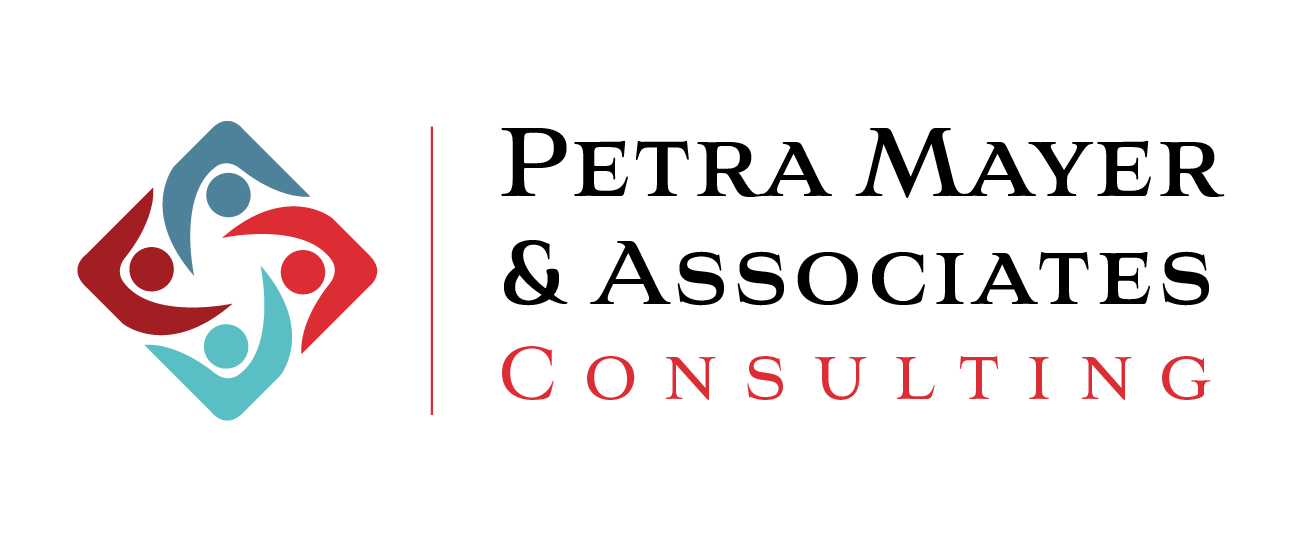Associations and nonprofits often find themselves faced with a familiar set of challenges – being understaffed, dealing with overwhelming workloads, and navigating tight budgets. In this article, we have invited experts in their field to contribute their insights as we look to uncover solutions for these challenges and explore how outsourcing can be a strategic lifeline for organizations facing these hurdles.
We specifically have asked experts specializing in Accounting and HR to join us. Together, we aim to provide you with valuable insights into the considerations surrounding outsourcing those topics or the Learning and Development tasks that we can do on your behalf.
Outsourced Accounting: What to Consider Before Diving In
For associations and nonprofits, outsourcing non-core functions can be a great way to save money, get more or better results, and keep your team focused on the core mission of the organization. Accounting (which includes bookkeeping, payroll, AP and AR) lends itself quite well to outsourcing. Organizations that outsource non-core functions like accounting can potentially reduce their headcount, refocus their staff on more mission-driven activities and cost-effectively access experts in the field.
However, it’s important to identify the optimal time to consider outsourcing these functions. Additionally, there may be practical things to consider or take care of before diving in. Determining if it’s the right time for your association to outsource accounting functions depends on a number of factors. Here are some indicators that your organization is ready to outsource some or all of your accounting and financial operations:
Limited Resources
Smaller associations or nonprofits often lack the budget to hire full-time, experienced accounting staff. In those situations, outsourcing can be a cost-effective alternative, allowing you to access professional expertise without the burden of hiring, training, and managing additional in-house personnel.
Financial Complexity
As an association grows and the financial transactions become more complex, managing the accounting in-house can become challenging. If you find that your organization’s accounting tasks are becoming overwhelming, working with an external resource can be a viable solution.
Time Efficiency
Managing accounting internally can take up valuable time that could be better spent on the core mission and activities. By outsourcing the accounting functions, you can free up your team to focus on strategic initiatives and program implementation.
Compliance and Reporting
Associations can be subject to specific accounting and reporting requirements, including tax filings and financial reporting for donors and grants. If your organization struggles to keep up with these obligations, working with accounting experts who are familiar with nonprofit regulations can be very beneficial.
Lack of Expertise
Accounting for associations or nonprofits can be highly specialized, and not all staff members have the necessary expertise. Outsourcing ensures that your organization’s financial operations are handled by professionals with relevant knowledge and experience.
Data Security and Fraud Prevention
External accounting firms often have robust security measures in place to protect sensitive financial information and implement checks and balances that can reduce the risk of fraud.
Access to Technology
Accounting firms typically have access to advanced accounting software, tools and processes that will enhance efficiency and accuracy in financial operations management.
What to Consider Before Outsourcing Your Accounting Function
Firstly, you should conduct a thorough cost-benefit analysis to compare the expenses of outsourcing with maintaining an in-house accounting team. In doing this, your organization should consider not only the monetary costs but also the value of the expertise and time that can be saved with outsourcing. Next, assess whether outsourcing accounting tasks align with your organization’s strategic objectives. Consider if it will allow your staff to focus on your mission and core competencies, and in that case, it may be a wise decision.
It’s important to evaluate your association’s unique situation and needs before deciding to outsource accounting functions. You would be wise to consult with financial advisors or other nonprofit organizations that have experience with outsourcing to gain additional insights and guidance.
Fractional HR Services
Outsourcing HR activities through fractional HR services or HR on retainer services can be a strategic solution for associations and nonprofits facing the common challenges as mentioned above. Let’s look at potential benefits and considerations for organizations looking to leverage fractional HR services.
Cost Savings
Outsourcing specific HR functions through a qualified HR consultancy can be more cost-effective than hiring full-time staff, especially for nonprofit organizations and associations with funding restrictions. Consider statutory requirements like paid vacation and sick days, Canada Pension Plan (CPP), employment insurance and worker’s compensation premiums. These costs are eliminated when utilizing an HR consulting firm. Additionally, costs associated with equipment like laptop computers and smartphones are the responsibility of the consultant. It is also important to note that employer-paid learning and development or tuition reimbursement programs do not typically include HR consultants so this is another cost benefit for the employer.
Expertise and Risk Mitigation
Fractional HR services often provide access to a team of experts with specialized knowledge in various human resources areas, including recruitment, employment standards compliance, and employee relations to name a few. A sound HR consultant would also reduce the employer’s risk for non-compliance and would be aware of upcoming changes to employment legislation. This can be particularly valuable for organizations that lack in-house expertise in certain HR functional areas. Tapping into an HR consultant’s expertise for specialized projects like a workplace investigation or an HR audit also frees up internal staff for more core mission-related tasks.
Flexibility
Organizations can access HR support on-demand, allowing them to respond effectively to fluctuations in workload. This is typically done through an HR-on-retainer service agreement where an agreed to amount of hours are available to the employer as needed. Examples of flexible service agreements include anything from a day or two per month to time-based projects that include a specific start and end date.
HR on Retainer Considerations
Confidentiality
A solid HR service provider will ensure robust data security measures are in place to protect sensitive employee information and organizational data. Non-disclosure agreements would also form part of the contractual obligations. Alternatively, the organization can set up the consultant in their IT infrastructure ensuring information shared is kept in-house.
Cultural Fit
Consider the compatibility of the outsourced HR team with the organizational culture to ensure smooth collaboration and effective communication. Meet with a few consultants and ask for references. Treat this like any other recruitment process to ensure the right fit.
Contractual Obligations
Establish clear communication channels and expectations between the organization and the fractional HR service provider to ensure a seamless workflow. Ensure the contract and statement of work are crystal clear and include deliverables, timelines and a termination clause.
In closing, leveraging fractional HR or HR on retainer services can be a strategic approach for associations and nonprofits to address HR challenges, providing cost-effective, specialized support that allows the organization to focus on its core mission. However, careful consideration and planning are crucial to ensure a successful outsourcing arrangement.
Outsourcing Learning and Development
Another critical aspect that associations and nonprofits should consider is the outsourcing of Learning and Development (L&D) functions. As organizations work to overcome HR challenges like skill gaps, outdated training methods, and limited resources, outsourcing L&D can emerge as the perfect solution. Let’s explore the potential benefits and considerations for organizations looking to enhance their workforce through strategic outsourcing.
Empowering Your Workforce with Outsourced Learning and Development
One of the primary challenges associations and nonprofits face is ensuring that their workforce possesses the necessary skills to drive the organization forward. Outsourcing L&D functions to specialized providers can offer several advantages.
Expertise and Innovation
Outsourcing L&D allows organizations to tap into the expertise of professionals who specialize in instructional design, curriculum development, and the latest learning technologies. This ensures that your workforce receives cutting-edge training programs, keeping them ahead in a rapidly changing work environment.
Cost-Effective Training Solutions
Developing and delivering training programs in-house can be resource-intensive. By outsourcing L&D, organizations can access cost-effective training solutions without the overhead costs associated with maintaining an in-house training team. This is particularly beneficial for associations and nonprofits working within tight budget constraints.
Scalability and Flexibility
As organizations grow, so do their training needs. Outsourcing L&D provides scalability, allowing organizations to easily expand or customize training programs based on evolving requirements. This flexibility ensures that training initiatives align with the organization’s growth trajectory.
Adoption of Technological Advancements
Learning and development methodologies constantly evolve with technological advancements. Outsourcing L&D ensures that your organization stays ahead of the curve by incorporating the latest e-learning platforms, virtual reality training, and other innovative approaches that enhance the learning experience.
Considerations Before Outsourcing Learning and Development
While outsourcing L&D offers significant advantages, it’s crucial to approach it strategically. Here are some considerations to ensure a seamless outsourcing arrangement:
Aligning with Organizational Goals
Before outsourcing L&D, evaluate how the training programs align with your organization’s strategic objectives. Ensure that the outsourced training contributes to the overall mission and goals, enhancing the skills that directly impact your organization’s success.
Customization and Adaptability
Work with your chosen L&D provider to ensure that training programs can be customized to meet the specific needs of your organization. Adaptability is key to addressing the unique challenges and requirements of your workforce.
Monitoring and Evaluation
Establish clear metrics and key performance indicators (KPIs) to measure the effectiveness of the outsourced training programs. Regular monitoring and evaluation ensure that the training initiatives contribute to tangible improvements in employee skills and organizational performance.
Cultural Alignment
Assess the cultural fit between your organization and the outsourced L&D provider. Effective communication and understanding of your organizational culture are essential for a successful partnership.
Outsourcing Learning and Development functions can be a strategic move for associations and nonprofits seeking to build a skilled and adaptable workforce. By leveraging external expertise and embracing innovative training approaches, organizations can empower their teams to thrive in the ever-evolving professional landscape. However, thoughtful consideration and alignment with organizational goals are vital for a successful and impactful outsourcing venture.
Final Thoughts
As we wrap up our exploration of outsourcing as a strategic resolution for HR challenges faced by associations and nonprofits, the possibilities become more apparent. The considerations for outsourcing specific activities are practical lifelines for those faced with understaffing, overwhelming workloads, and tight budgets.
Contributors
Enkel
Outsourced Accounting
Enkel is one of Canada’s leading accounting as a service providers. Enkel offers bookkeeping, payroll, accounts payable and accounts receivable services to over 300 businesses and not-for-profit organizations across Canada. Their team of accountants and bookkeepers can help you manage your back office on an ongoing basis. Get the monthly reporting and
financial visibility that your business needs.
Mindful HR Services
Fractional HR Services
Mindful HR Services Inc. is dedicated to fostering mindfulness and balance within professional environments. With a mission to inspire healthier workplace cultures and create more mindful employees, they bring expertise in workplace mindfulness that enhances self-awareness, cultivates team cohesion, and builds trust, resulting in a resilient workforce.
Petra Mayer & Associates Consulting
Outsourced Learning and Development
We’re dedicated to guiding you from an idea to delivering tailored training services seamlessly. Our mission is to empower you for increased productivity and scalability through engaging learning solutions that suit your specific needs. Let’s get started today!


